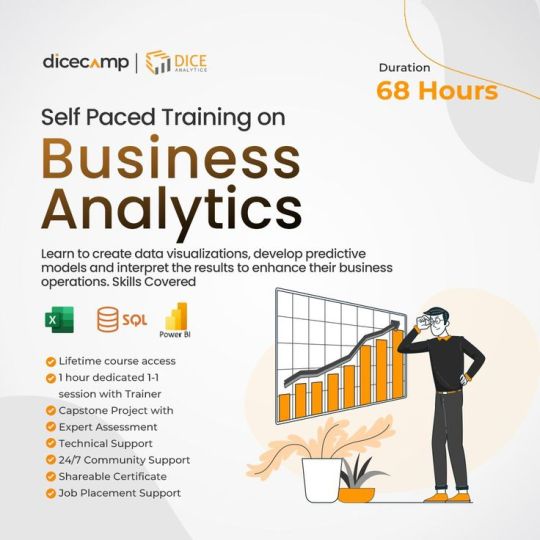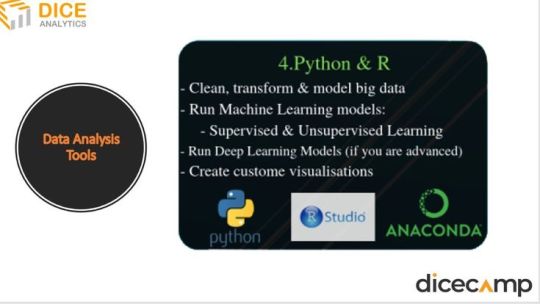#selfpacedcourse
Explore tagged Tumblr posts
Text
International Shipping: Master Trade, Logistics & Documentation with Confidence
If you're looking to deepen your understanding of global logistics, documentation, and trade regulations, this international shipping course is the perfect fit. Designed for professionals and learners alike, the course covers everything from the history of container shipping to customs compliance and efficient cargo movement.
You’ll learn about various shipping modes, freight forwarding, documentation essentials, and how to navigate global trade challenges confidently. With practical examples and expert-led content, it’s ideal for anyone aiming to build or boost a career in international logistics and supply chain management.
Offered by Artemus Transportation Solutions, the course includes a certificate of completion and insights gained from real-world experience, making it both credible and career-enhancing.

#InternationalShippingCourse#GlobalTrade#LogisticsTraining#SupplyChainEducation#FreightForwarding#OnlineLearning#ProfessionalDevelopment#SelfPacedCourse#MaritimeEducation#ArtemusCourses
0 notes
Text
Unveiling the Magic: Decoding Data Science and Machine Learning
In today's data-driven world, information is king. But raw data is like an undiscovered treasure trove - its true value lies in its insights. This is where data science and machine learning come in, the dynamic duo transforming data into actionable knowledge.
Data Science:Data Science: The Art of Exploration
Imagine a vast library filled with countless books. Data science is like being a skilled librarian, able to not only find the information you need but also uncover hidden patterns and connections. Here's what data scientists do:
Data Collection and Cleaning: They gather data from various sources and ensure it's accurate and usable for analysis.
Exploratory Data Analysis (EDA): They explore the data to understand its characteristics, patterns, and trends.
Data Visualization: They create compelling charts and graphs to communicate insights effectively.
Statistical Modeling: They build models to predict future outcomes or classify data points.
Machine Learning: The Algorithmic Powerhouse
Machine learning algorithms are like intelligent students who can learn from data without explicit programming. They can identify complex patterns and make predictions based on those patterns. Here are some common types of machine learning:
Supervised Learning: Algorithms learn from labeled data to make predictions for new, unseen data (e.g., spam filtering).
Unsupervised Learning: Algorithms uncover hidden patterns in unlabeled data (e.g., customer segmentation).
Reinforcement Learning: Algorithms learn through trial and error to maximize rewards in a specific environment (e.g., self-driving cars).
The Power of Together: Data Science and Machine Learning
Data science and machine learning are a perfect blend. Data science provides the foundation for understanding and preparing data, while machine learning algorithms leverage this data to make predictions and uncover hidden insights. Together, they revolutionize various fields:
Finance: Fraud detection, risk assessment, personalized financial products.
Healthcare: Disease prediction, personalized medicine, drug discovery.
Retail: Recommendation engines, targeted marketing, customer churn prediction.
Become a Data Science Mastermind
The demand for data science skills is skyrocketing. If you're fascinated by the potential of data and want to unlock its secrets, consider enrolling in a comprehensive data science course like the one offered by Dicecamp.
Dicecamp Data Science Course:Data Science Course: This course can equip you with the essential skills in Python, data wrangling, visualization, and machine learning algorithms. Whether you dream of becoming a data scientist, business analyst, or anyone who wants to leverage data for better decision-making, this course can be your launchpad.
The future belongs to those who can harness the power of data. Are you ready to join the data science revolution?
To get more information , Kindly Visit:
Data Science & Machine Learning Course
Bridge the Gap Between Data and Decisions: Master Data Science Course using Machine Learning Empower yourself with the in-demand skills of data science and machine learning through our dynamic Applied Hybrid Training program! This innovative data science course seamlessly blends classroom instruction with online learning, providing a well-rounded foundation for your data science journey. Learn to unlock the power of data and leverage machine learning algorithms to solve real-world challenges. Uncover the Magic Behind the Data: Machine Learning Fundamentals: Demystify the concepts of machine learning algorithms and explore their practical applications across various industries. Python Programming Prowess: Gain hands-on experience with Python, the language of choice for data science. Learn how to leverage its libraries and tools to implement machine learning models effectively. Data Wrangling Expertise: Master techniques for handling and manipulating datasets from diverse fields. Understand how to prepare data for optimal use with machine learning algorithms. Actionable Insights from Algorithms: Discover how to interpret machine learning outputs and translate them into actionable insights that drive real-world results. Data Communication Mastery: Learn to communicate your data science findings with clarity and impact, effectively presenting the results of your machine learning models. By the end of this Data Science Course using Machine Learning , you will have enough knowledge and hands-on expertise in Python to use and apply them in the real world around you. Also, you will be able to get prepared for certifications of Data Camp and Cognitive AI.
0 notes
Text

Unlock the secrets of Financial Supply Chain Management with our comprehensive pre-recorded videos course on SAP S/4HANA FSCM. 💼💹
🔍 Course Highlights: ✅ In-depth modules covering Cash and Liquidity Management ✅ Strategies for Credit Management and Collections ✅ Real-world scenarios and case studies ✅ Hands-on exercises for practical application ✅ Expert insights from industry professionals
👩💻 Who Should Attend: Finance professionals, SAP consultants, and anyone eager to master the latest in FSCM.
🎓 Why Choose Our Course? 🌐 Accessible anytime, anywhere 🎯 Tailored for practical implementation 📈 Stay ahead in the dynamic financial landscape 🏆 Certification upon course completion
📈 Take Your Career to New Heights!
🔗 Enroll Now: https://www.gauravconsulting.com/product-page/sap-s-4-hana-fscm
If you have any questions or need further information, feel free to reach out to us at: Website: www.gauravconsulting.com E-mail: [email protected] Call/ WhatsApp Us: +91 9158397940
#SAPFSCM#FinancialExcellence#S4HANACourse#OnlineLearning#CareerDevelopment#gls#supplychainmanagement#videoscourse#onlinetraining#selfpacedcourse#sapconsultant
1 note
·
View note
Text
Boost your potential with our affordable program management self-paced program, designed for busy professionals who want to make an impact without sacrificing quality.Busy workers may struggle to find time to continue their education. Self-paced program let you study whenever it’s convenient for you.Join Augment Consultancy to take advantage of our self-paced program management courses and other professional development opportunities.
0 notes
Link
Click4learning.com is a leading Software online training platform that provides online training and Self Paced Videos for top software courses to facilitate a learning and skill development to share, coach and mentor young educated youth with industry relevant skills.
For more details please reach out to [email protected] For Self Paced courses https://click4learning.com/
0 notes
Link
0 notes
Text
IT Courses
Your altitude will depend on your attitude and ability. Increase Your Success with Prognoz! A new beginning to realise your job goals!
"Picking the Best Institute is selecting the right Career," At the conclusion of the course, we offer genuine software certification and job placement services in reputed IT Companies with the greatest compensation.
Join our training program right away!
For Any query, please contact @ +91-9643261252
Email: [email protected]
Visit: https://prognoztech.net

#onlineclass #onlinecourses #education #ITCourse #Achievement #Career #OnlineITClass #PrognozTech #Enroll #ITSkills #Students #OnlineITClasses #JobOrientedCourse #IT #Technology #Prognoz #software #ITOnlineTraining #softwareskills #ittrainings #devops #Softwaredeveloper #SelfpacedCourse #SelfpacedITcourse #BestITInstitute #CareerinIT #Jobplacement
0 notes
Photo

Hello everyone, ScholarsPro is extremely delighted to announce Launch self paced e-learning courses on PMP, ITIL, Six Sigma, Scrum , Prince2 and Big data Hadoop. These courses are developed by International Experts with HD quality videos . Get 6 months 24x7 access, Query Resolution , Mock Test and PDUs . REGISTER NOW FOR FREE 3 days access. Email us at [email protected] with subject line as " Self Paced Course ” and do not forget to mention your name, email id and course name and we will grant you free access for 3 days. HURRY UP AND GRAB THIS OFFER.. :) #PMP #ITIL #SixSigma #Scrum #Prince2 #BigData#Hadoop #SelfPacedCourse#OnlineProfessionalCertificationalCourse#ScholarsPro
0 notes
Text
8 winning qualities of a Quality Assurance Lead | Become a QA expert
Quality assurance and software testing has become important more than ever.
In the fast paced environment of today’s software development industry, the high speed delivery of any software requires a roundly efficient and effective quality assurance workflow. Thus the role of a QA engineer has now evolved to some thing that works hand-in-hand with all stakeholders and develops new processes that support quality testing, in parallel to software development.
Maintaining such a graceful process is a challenge. A QA lead is that remarkable personality who uses a set of core skills to make it possible.
These skills are presented as 8 qualities of great QA leads which makes them create a reliable quality assurance mechanism in today’s agile development environment.
Table of contents
QA Engineer vs. Software Tester
QA engineer roles and responsibilities
8 Qualities of great QA lead
How to become a QA engineer?
Career paths for QA engineer
Career transition to quality assurance
Who is a QA Engineer? And how do they differ from a Software Tester?
A QA engineer is a vibrant personality in the quality management department who plays an active role across the whole testing life cycle– from requirement analysis to forming testing strategies and managing change. As a core requirement of this process, a QA specialist is responsible for improving a company’s current testing life cycle through new process establishment, and evaluation.
Software testers, on the other hand, play just part of the whole quality assurance role. These personalities mainly work at the end of the testing life cycle– perform test case execution and report findings, although not always necessary. What differentiates quality testers from QA engineers is that a quality tester implements a process while a QA specialist establishes and improves thereof.
Job Description of a QA Engineer
A software company requires QA engineers to establish and maintain a quality and reliable testing mechanism for its products/projects.
A QA engineer uses their skills to enable a cost friendly quality control mechanism for a company. These skills include sound knowledge and hands-on ability in the software testing life cycle– STLC, agile testing methodology, and project management.
Generally, a software company seeking an expert QA engineer envisions fulfillment of the following job responsibilities.
Gain first-hand knowledge via meetings with all business and nonbusiness teams starting at the earliest stage of the SDLC.
Evaluate existing processes and establish agile testing practices to improve test productivity.
Set quality standards and metrics that reflect the company’s values and fulfill client’s requirements.
Inform and inspire the development team to fulfill the minimum quality standards during software development.
Cover an extra mile by collaborating with clients and ask for critical details on user and software requirements.
Manage and take on change requests at any stage during the software development.
Evaluate the bug severity and urgency and create simplicity in communication to the development team.
Involve and encourage all QA engineers and software testers in quality assurance workflows through distribution of work based on talent.
8 Qualities of a Great QA Lead
A great QA lead has a set of core skills that help them establish an adaptive quality assurance mechanism that guarantees cost and time saving for the company.
Following are 8 winning qualities of a great QA lead:
1. To them, Quality Assurance is nothing without 3 things
SDLC & STLC
Testing Methodology
Project Management Phases
To briefly state the above, a QA lead applies knowledge from these three core areas to manage the software testing life cycle. Here’s how it helps them:
STLC + Project Management: To enable a reliable testing life cycle, a QA lead builds an STLC workflow based on project management principles. This is achieved using the 5 commonly known project management phases:
Understanding: A QA lead interacts with the teams dedicated at every phase of the development cycle (SDLC) to truly understand business requirements
Planning: A quality assurance plan is developed as per business requirements.
Execution: The QA plan is executed at this stage.
Feedback: Feedback from client is collected and incorporated in another round of testing.
Windup: The QA efforts are considered done after the delivery of quality assured software to the client.
However, to comply with the fast paced development environment we have these days, project management driven STLC is still not enough.
… + Testing Methodology: Testing methodologies guide a QA lead to adopt an adaptive project management approach (one that welcomes changes to effectively meet the requirements of the business stakeholders). For clarity, an example of this could be a QA lead regularly reflecting on the current practices to identify improvement needs.
About Testing Methodology: A testing methodology refers to either the waterfall or agile (also termed as scrum) method of software development. At its core, it defines a set of behaviors for SDLC teams to effectively meet development goals. For this, the testing methodology reflects if the phases in a software development life cycle run in series or in parallel.
In the waterfall model, for example, a phase once completed is bound for no revisits. This is just like the manner of how water falls in a spring. But, as customer requirements started to change frequently in the 1990s, developers found the waterfall approach ineffective in managing change. Thus, as a result of combined efforts from developers, the Agile concept was established.
Briefly stating, the Agile concept focuses on customer and cross-team collaboration on a daily basis. Alongside, it establishes a mechanism to adjust the resulting feedback by breaking big tasks into smaller ones and enabling continuous delivery of changes in the software.
2. Prioritizes bugs on severity
A great QA lead evaluates and prioritizes bugs on the basis of severity with the aim of taking the development and testing to an ultimate level of productivity.
The QA lead uses a system called a bug triage to identify and evaluate bugs. A bug triage takes a proactive approach and considers shortlisting bugs based on severity. At its minimum, a bug triage takes three subsequent stages. It starts with identifying how problematic the bugs are. Each bug is then prioritized for fixing along with finding the processes that fix them.
The frequency of bug occurrence is also taken into account so that the team knows how the discovered processes should be used to avoid recurrence of bugs.
3. Won’t skip Unit & Integration testing before System testing
Ideally, any software testing starts with the smallest feature or a ‘unit’ and gradually moves to the system level features. Finding and fixing bugs at the micro level of a software eases the testing pressure on QA team at the later stages.
A great QA lead thus prioritizes unit and integration testing before jumping to the system level testing. They also understand the impact of unit features on customer experience and dedicate resources for unit and integration testing.
A wrong approach for QA teams is to jump straight to the system testing and taking on the pressure of untouched features at the unit and integration levels.
4. Places collaboration at the heart of QA
A great QA lead autonomously gets involved with all stakeholders (including business teams and customers).
As per the Agile testing philosophy, the QA specialists are to engage with business and development teams starting right at the beginning of the software development life cycle.
The QA lead thus builds an autonomous team, one that independently collaborates with all other teams and takes a first hand knowledge of the quality requirements. The QA specialist knows the fruits which are brought as a result of software testers being aware not only of the client and business expectations but also the thought process of the intended users.
In other words, It’s only through an extensive collaboration that a QA lead becomes able to deliver remarkable quality standards as perceived by the business, the client and the users.
With the idea of autonomous quality assurance teams, the QA lead is also encouraged to independently divide work among resources and plan and estimate time for the test life cycle.
5. Distributes work based on talent
A great QA lead understands every QA resource has to play a pivotal role across the whole testing lifecycle. They have the eye that sees what each member is best capable of and divide responsibilities accordingly.
For example, a testing engineer well-versed in written communication could be assigned the documentation work. Another member who’s excellent in strategy formation might be assigned with formulating the test cases. Similarly, a testing engineer with strong analytical ability might be dedicated to perform user requirement analysis.
6. Understands that Testing is not a phase (Agile testing principles)
Software testing has become an integral part of the complete software development process instead of being an isolated phase. This new paradigm of quality assurance is called agile testing and is part of the agile development methodology.
So, working as part of the agile testing environment a QA lead changes conventional testing principles to adopt the following agile principles:
Testing is not just for designated testers: A QA lead understands that testing is no more confined to software testers only. They involve all teams across the development lifecycle to adhere to the minimum quality standards.
Test driven development: Testing runs in parallel with each development sprint instead of in the last.
Test early: The QA lead establishes efficient testing processes that ensure bug detection and resolution before the sprint is completed.
Further, a QA lead nourishes the testing environment with automation testing; an agile practice. They utilize the capability of automation to shorten a sprint period and accomplish maximum testing within that sprint. At the minimum, a QA lead automates unit and integration tests.
7. Knows the art of Change Management
A great QA lead knows the art of effective change management and successfully adapts their testing strategy to adjust for new software changes.
While working in an agile environment, there’s always the possibility of change requests even at a later stage in development. The sources of change could include for example, detected bugs and errors, changes in market dynamics or customer interests, or business reorganization.
As change requests occur, the QA lead gears-up the testing team and uses change management principles to establish processes that perform testing under time and cost constraints. Once the new changes have been tested, the QA lead communicates these changes to developers and the cycle continues.
8. Avoids failure cost of Quality
A great QA uses effective test planning and execution to avoid the failure cost of quality. They save the company’s spending on expensive quality assurance that might occur after the production stage.
To minimize failure cost of quality, the QA lead ensures adequate spend before arrival of the production stage and believes to bring greater good to the company
First cost which the QA lead puts focus on is the prevention cost. It’s the cost that is incurred during the planning stage of the software testing life cycle. The amount is spent on establishing quality assurance processes such as user and software requirement analysis, prioritizing bug fixes, and developing testing processes. This can also include hiring of specialists and team upskilling.
Second is the appraisal cost that is incurred on the software before it is shipped to the customer. It’s the amount a company spends to ensure an effective test execution and reporting.
Setting a quality testing cycle like such, the QA lead is able to save the company from failure costs and the reputational damages that it brings with it.
Become an expert Quality Assurance lead: Online Course
Dicecamp brings a complete course on quality assurance and software testing led by a leading industry expert. Find more about the course.
Why take this course: Individuals can learn the ability to become a qualified Quality Assurance lead who confidently takes forward an organization’s quality assurance initiatives.
What will you learn: This course covers all the core theory, tools and techniques used in the area of software testing and quality assurance. You will learn: software testing techniques, software testing planning & strategies, software testing management, agile testing, and software testing automation.
View the detailed course outline.
What are possible Career Paths for a QA lead?
As a QA engineer you are open to more charming opportunities such as QA developer in test, QA in DevOps and DevOps engineer.
DevOps is the glorious role in current technology scape that offers handsome salary along with remarkable tributes. The demand for DevOps skills has severely increased worldwide with supply remaining at dire levels.
Taking this opportunity, a QA specialist can easily build on top of their quality assurance profile and learn DevOps skills.
Here’s how to do this step by step.
Learn and practice automation testing: The first step for you is to learn and practice automation testing. You would need following skills:
Knowledge of Python or Javascript for writing automation tests.
API automation testing
SQL query writing and Shell Scripting
CI/CD pipeline testing/Integration testing using Jenkins and/or Gitlab
Development (Fix a group of bugs): Companies leverage the proximity between software testing and development by offering the job role of a ‘QA Software Developer in Test’. Testers at this job role manage testing and development in consecutive phases. You would need following skills:
Programming knowledge and hands-on skills on high level languages.
By this stage, an individual has 3 core skills of a DevOps engineer: quality testing skills, automation testing hands-on and programming language proficiency.
With little more effort, a software quality testing specialist can adopt a full DevOps engineer role.
Learn configuration management:
CLI of Unix/Linux or Windows OS.
Configuration automation tools (Puppet, Chef, Ansible)
Container run time (Docker, rkt, cri-o)
Container orchestration tools (Kubernetics)
Knowledge of any one cloud platform: AWS, Azure etc
Start your QA journey today! Watch the webinar.
youtube
#dicecamp#datascience#sqacourse#softwaretestingcourse#qualityassurancecourse#data scientist#data science course#selfpacedcourse#Youtube
0 notes
Text

Cloud Computing Course With AWS
Elevate your career with our Cloud Computing with AWS self-paced course! Over 80 hours, you'll gain in-depth knowledge and hands-on experience with AWS, the leading cloud platform. 💻 Equip yourself with the skills needed to thrive in the rapidly evolving tech landscape.
Link to get Registered : https://dicecamp.com/cloud-computing-course-with-aws-
#dicecamp#datascience#cloudcomputingonlinecourse#cloudcomputing#cloudcomputingcourse#selfpacedcourse#careertest
0 notes
Text

Business Analytics Course
Master Excel, SQL, and Power BI seamlessly in one comprehensive program, propelling yourself into the world of business analysis. Gain invaluable insights with self-paced modules and enhance your skills with a 1-hour live session led by industry expert. Embrace data-driven decision-making, and become a proficient Business Analyst with our dynamic training approach.
Enroll Now : https://dicecamp.com/business-analytics-course
#dicecamp#businessanalyticsapplications#businessanalytics#businessanalyst#businessanalyticscourse#businessanalyticsselfpacedcourse#businessanalyticsonlinecourse#selfpacedcourse
0 notes
Text

Data Analysis Tools : Python & R - Dicecamp
Python & R reign supreme in data analysis. Python (general-purpose) excels in data manipulation and integration with other tools, while R (statistics-focused) boasts powerful statistical functions and visualizations. Choose Python for versatility, R for deep statistics. Explore Dicecamp's Python for Data Science path to launch your journey!
Link : https://dicecamp.com/python-course
#dicecamp#pythoncourse#python#pythononlinecourse#pythonselfpacedcourse#datascience#data scientist#data science course#selfpacedcourse
0 notes
Text

Python Course - Dicecamp
Learn Python for Machine Learning at your own pace! ��� Dive into our self-paced course, spanning 21 hours and featuring essential tools like Python, NumPy, Anaconda, and Jupyter. Elevate your skills and advance your career in the dynamic world of machine learning.
Enroll Now : https://dicecamp.com/python-course
0 notes
Text

Data Science & Machine Learning Course - Dicecamp
Stop dreaming and start earning with hands-on training and job-ready expertise, success is within reach! Our exclusive Data Science & Machine Learning Course starting July 27th!
Gain invaluable insights from industry experts, master in-demand skills, and unlock the path to a six-figure salary
Reserve your seat Now : https://dicecamp.com/data-science-machine-learning-course
0 notes
Text

KNIME Course:
Learn the Data Science Using KNIME by Drag and Drop Tool and be a Data Scientist. Data Science and Machine Learning is now effortless for Anyone & People from Non-Technical Background can also learn it.
0 notes
Text

Python Applications - Dicecamp
Python (2024): Web dev back-end (Django, Flask), data science (NumPy, Pandas, Machine Learning), automation, scientific computing (SciPy) & general software dev. Easy to learn, vast libraries - a programming Swiss Army Knife!
0 notes